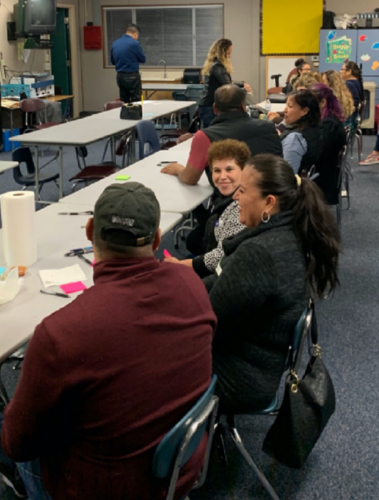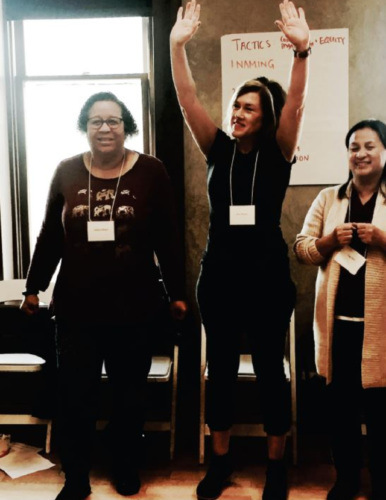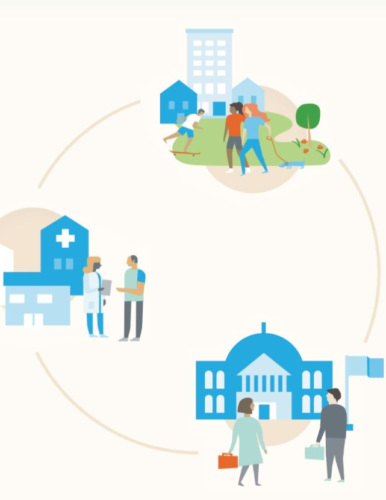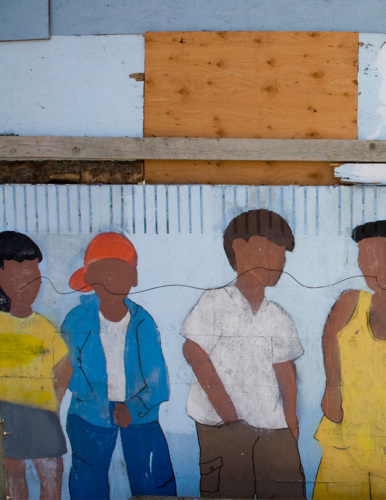
Population Health Innovation Lab (PHIL)

PHI’s Population Health Innovation Lab (PHIL) brings new options for innovation to public health. In the same way that Silicon Valley creates lasting change through new perspectives on old challenges, at PHIL we use new approaches, new technologies, and new partnerships to develop solutions for our communities’ most complex problems—and then share and spread what works.
Working directly with communities in need, PHIL moves beyond the symptoms to address the root issues and the systems at the heart of the challenge. We bring together a wide range of communities, innovators, funders, and public health professionals to use new tools and methodologies in new ways.
At the same time, we also harness the assets PHI has amassed over its 50 years at the forefront of public health: nationally ranked researchers, diverse and proven programs, strong infrastructure, and a wide network of partners.
-
Focus Areas
Capacity Building & Leadership, Chronic Disease Prevention, Data, Technology & Innovation, Health Care & Population Health, Healthy Communities -
Issues
Adverse Childhood Experiences, Community Benefit, Heart Disease, Population Health, Rural Health, Violence Prevention -
Expertise
Coalition & Network Building, Technical Assistance
Our Impact
See all Population Health Innovation Lab (PHIL) Impacts

- 100 people trained from 10 communities
- 92% learned new community engagement strategies
- 83% improved their understanding of community engagement
Projects
Active Projects
- Community Platform and Curriculum
-
Develop a training curriculum for the California Accountable Communities for Health (CACHI) sites across the state. Launch and support an online social network platform to host materials and encourage cross sector collaboration.
- Northern ACEs Collaborative
-
Many Northern California Counties are disproportionately affected by high Adverse Child Experiences (ACE) scores relative to other regions in California. Domestic violence is an indicator in the ACE spectrum along with other Social Determinants of Health, which play a critical role in healthy families. A group of stakeholders from six northern California counties —Butte, Colusa, Glenn, Shasta, Tehama, and Trinity—have come together to form a multi-sector collaborative to identify and address opportunities for policy and systems change that mitigate issues of trauma and domestic violence using the Life-Course Model. Representatives from over 26 organizations, and sectors including healthcare, K-12 education, early-years and childcare, social services, domestic violence agencies, and public health, have contributed time and resources to the Collaborative. Blue Shield of CA Foundation has recognized the value that this unique collaborative can provide to support their goals related to ending domestic violence. Stakeholders from across the five counties have convened to develop and establish a clear set of priorities and action steps to address identified root causes of ACEs and the linkage to domestic violence. Learn more.
- Collaborative Planning and Implementation (CPI) Facilitator for the Northwest and Southwest Regions
-
California is spearheading a groundbreaking transformation of its Medi-Cal program with the innovative Providing Access and Transforming Health (PATH) initiative. Over the course of five years, this initiative, led by the California Department of Health Care Services, aims to enhance the capacity and infrastructure of essential on-the-ground partners, including community-based organizations, public hospitals, county agencies, tribes, and others to implement Enhanced Care Management (ECM) and Community Supports.
Backing this transformative endeavor is the Collaborative Planning and Implementation (CPI) initiative, which provides structured county and regional collaborative planning groups intended to support the implementation of ECM and Community Supports. The Population Health Innovation Lab (PHIL) facilitates two regions in Northern California. The Northwest region is comprised of the counties of Humboldt and Del Norte, the Southwest region is comprised of the counties of Lake, Marin, Mendocino, Napa, and Sonoma. Through convenings, workgroups, and technical assistance, PHIL works with community members in identifying, discussing, and resolving topical implementation challenges, determining the synergy between PATH and other CalAIM funding initiatives.
Completed Projects
- California Accountable Communities for Health Initiative (CACHI)
-
In late 2016, PHI partnered with Community Partners, State of California along with several other funders to launch the California Accountable Communities for Health Initiative (CACHI), which aims to modernize our health system, building on the Accountable Communities for Health (ACH) model. CACHI brings together clinical providers with public health departments, schools, social service agencies, community organizations, and others to improve critical health issues such as heart disease, diabetes, trauma, and promote greater health equity.
In 2017, CACHI expanded from 6 to 15 communities throughout California, to involve local communities in Southern California, the Central Valley, and Northern California. Each partner brings a unique set of skills and knowledge to change the environments that people live in, and will work together to address the root causes of health and inequities where they live.
PHIL provides support to 9 of the 15 communities. The approach includes a revised Curriculum and Playbook, one on one and group calls, convening, web discussions on relevant topics, Individualized supports and Technical Assistance Offerings (limited), resource brokerage, document repository website. Through peer learning, there is an opportunity to come together as learners, share perspectives, and broaden perspectives gaining a wider systemic perspective of population health and how to be more equipped to address the needs of their communities.
- Leveraging Collaboration to End Domestic Violence
-
Create a multi-county initiative that will develop meaningful policy change to address factors that contribute to domestic violence and adverse childhood experiences, while utilizing the Public Health Innovation Lab’s methodology of facilitation and technical innovation.
- Developing Measures for Aligning in Cross-Sector Collaboratives
-
The Population Health Innovation Lab (PHIL) has been awarded a rapid-cycle grant from the Georgia Health Policy Center (GHPC) to build upon our existing Aligning Systems for Health (AS4H) research project. PHIL will test and validate over 200 quantitative and qualitative measures of cross-sector alignment constructs using data collected in the existing AS4H study. PHIL will then assess the validity, feasibility, and utility of these findings through the conduct and analysis of in-depth interviews and focus groups. This work will contribute to a measurement toolkit for cross-sector alignment being developed by GHPC.
- Building Capacity to Advance Rural Public Health Research
-
To support CDC in addressing rural public health research challenges PHI’s Population Health Innovation Lab (PHIL) will provide expertise and experience in working with rural health partners, facilitating interactive events, and developing CDC guidance documents. This project has two main components: (1) a virtual day-long roundtable workshop focused on rural health research methods and challenges and (2) development of a rural health research guidance document.
- Community Engagement in Biomedical and Health Sciences Research Study
-
The study aims to understand the attitudes, beliefs, and motivations for conducting and funding biomedical and health sciences research that directly engages underrepresented communities of color. This study will deepen understanding of best practices when engaging community members and leaders in research, the systems in place to do this work, and the key players in building meaningful researcher-community relationships.
- Assessment of Local Health Department Data Use for Outbreak Response in Healthcare Settings
-
The Local Health Department (LHD) Data Use for outbreak response evaluation is a qualitative evaluation that will assess LHD usage of infection data and health equity information to respond to outbreaks. The evaluation seeks assess LHD awareness, access, and use of data, including infection and health equity data, for preventing and responding to outbreaks in healthcare facilities. Findings from this evaluation will be used to develop tools and resources that can strengthen relationships between LHDs, facilities, and partners, increase LHDs’ use of data to inform strategic decisions, support LHDs to develop data practices that lead to more equitable outcomes in outbreak response in healthcare settings, and decrease rates of healthcare associated infections (HAIs) in healthcare facilities.
- Local Health Department Data Use for Outbreak Response in Healthcare Settings Technical Assistance
-
The project aims to enhance LHDs' capacity for effective outbreak response. This initiative involves developing a comprehensive strategic collaboration guide, equity framework, and data management resources tailored for LHDs to increase to capacity for outbreak response in healthcare settings. Project activities include hosting webinars, creating interactive tools, and providing strategic collaboration and equity workshops to improve outbreak response strategies.

Work With Us
You change the world. We do the rest. Explore fiscal sponsorship at PHI.
Support Us
Together, we can accelerate our response to public health’s most critical issues.
Find Employment
Begin your career at the Public Health Institute.

















